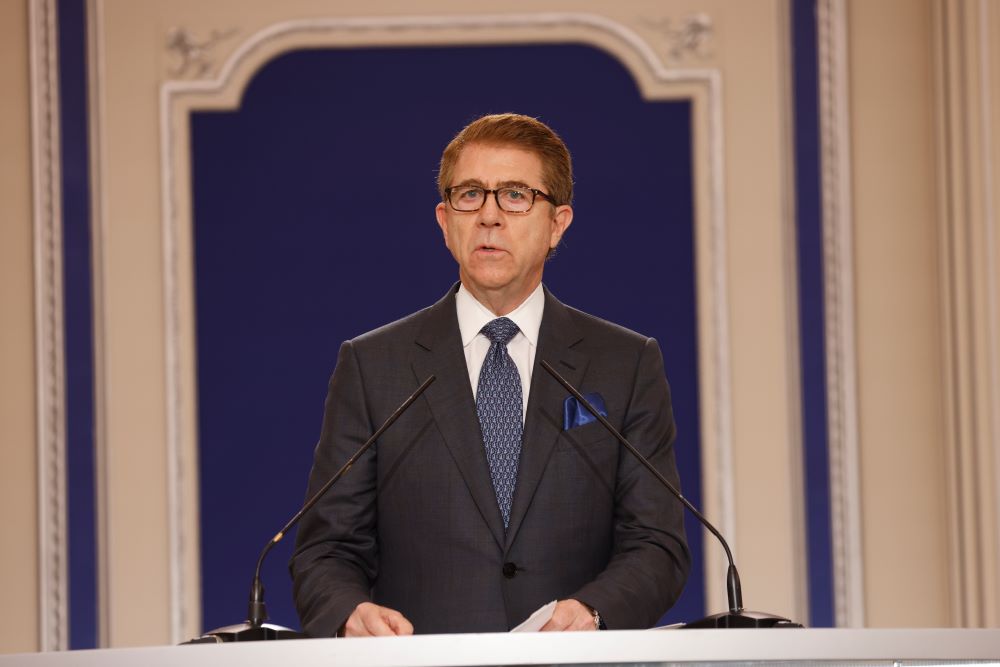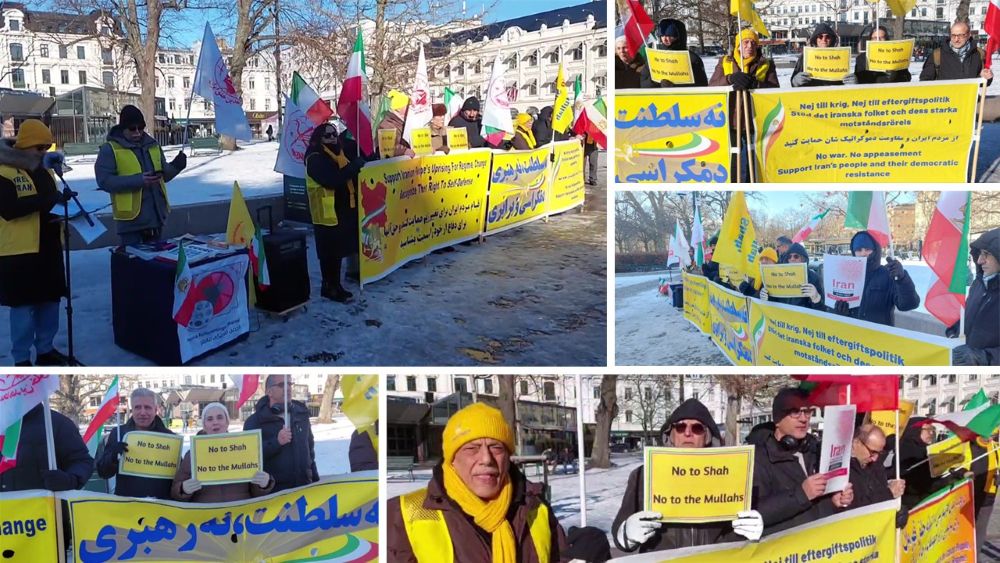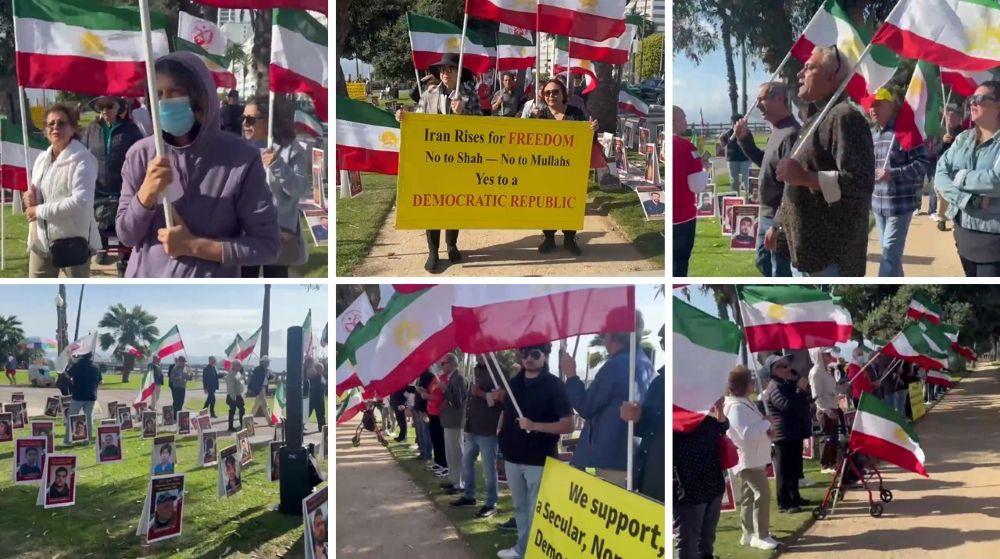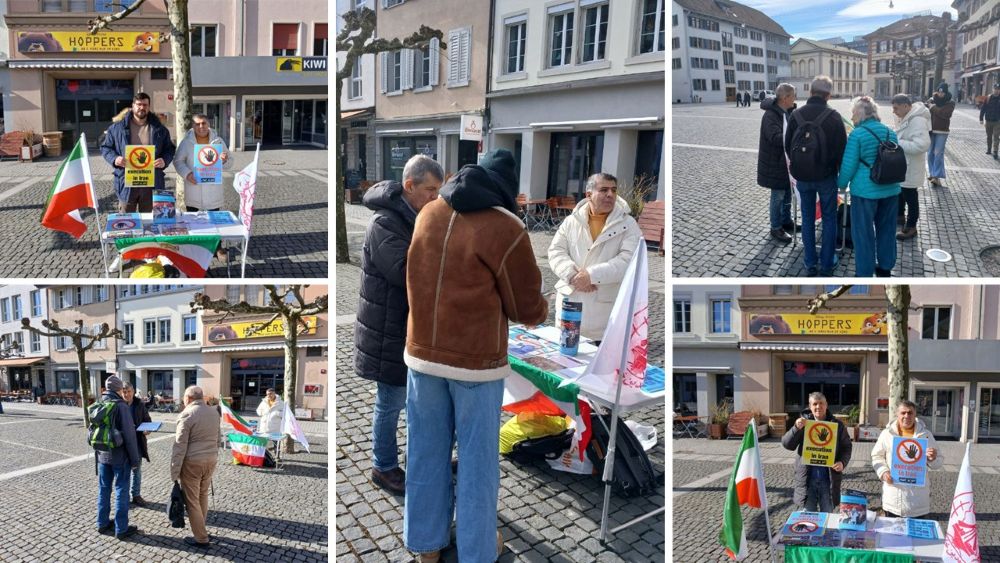
At an international conference addressing human rights violations in Iran, Ambassador Lincoln P. Bloomfield Jr., former U.S. Assistant Secretary of State for Political-Military Affairs, shed light on the Iranian regime’s persistent defamation campaign against the People’s Mojahedin Organization of Iran (PMOI/MEK) and the National Council of Resistance of Iran (NCRI). In his remarks, Bloomfield detailed how the regime has consistently employed misinformation and false narratives to discredit the resistance and justify its repression.
Ambassador Bloomfield highlighted that for decades, Western officials and media have inadvertently amplified these misleading portrayals, effectively aiding Tehran in its efforts to delegitimize the PMOI and NCRI. He called on the international community to reject the regime’s propaganda, pointing out that recent court rulings in the UK, EU, France, and the United States have exposed many of these allegations as unfounded.
“The wall of disinformation has come down,” Ambassador Bloomfield declared, urging the world to see through the regime’s deceit and support the Iranian resistance in its struggle for freedom and justice. He emphasized the importance of holding the regime accountable for its crimes against its citizens and called for the global community to resolutely oppose the spread of Tehran’s false narratives.
The full text of Ambassador Bloomfield’s speech follows:
Thank you, and good afternoon.
Madam Rajavi, members of the NCRI, residents of Ashraf 3, and all who are listening, I send you my greetings.
Thank you for this invitation. Distinguished colleagues, I’m honored to sit among you and join this important dialogue. I’m not credentialed in the law as are my colleagues here.
My background is as a foreign policy practitioner in the US government, where I saw that no matter how many resources the government could provide to people in need in conflict zones, whether it is food, medicine, or shelter, there was one universal principle without which there can be no enduring peace and that principle is justice.
Today, we are focused on major crimes against humanity by the clerical dictators who’ve ruled Iran for over 4 decades.
We need to go back to 1988 and to the earliest years of the Islamic Republic because the regime’s terrible crimes have been obscured behind a massive wall of official denials, disinformation, and false narratives.
For years, the NCRI and PMOI have honored the memory of the regime’s tens of thousands of victims. In 2006, as Madame Rajavi told us earlier, the Resistance published an extraordinary book entitled, “Fallen for Freedom, 20,000 PMOI Martyrs Volume 1.”
In Albania, they recreated the torture facilities many residents endured in the prisons of Iran to alert the world to these human rights abuses.
Thanks to the work of Professor Javaid Rehman, the United Nations Rapporteur on the situation of human rights in Iran, the world has been officially notified that the leadership of Iran systematically murdered tens of thousands of citizens over many years.
Our governments now bear the obligation to pursue accountability for those who committed what Rapporteur Rehman has concluded was genocide.
In recent years, I’ve conducted independent research to try and explain the motivations and behavior of Iran’s clerical dictatorship in the hope that the policies of my government and others could benefit.
The UN rapporteur’s report has told us what happened. I want to tell you why it happened. The story behind the genocide explains why this regime has always been so desperate to silence and demonize Iranian citizens who support the organized resistance.
The People’s Mojaheddin was a study group formed by three students in the mid-1960s examining how countries like Vietnam, Cuba, Algeria, and others had risen up to end colonial rule. For six years, the Shah’s security forces knew nothing about them.
In 1971, when members were caught planning to embarrass the Shah by knocking out electrical power during the Shah’s 2,500-year jubilee celebration, over 150 PMOI members were rounded up and executed.
Only one of the original eight movement leaders was spared, the youngest one, Masoud Rajavi. He spent the 1970s in jail. These idealistic young intellectuals wanted to bring Iran into the modern world politically.
They were Muslim and they believed Islam meant freedom, including gender equality and political agency. The PMOI upholds the same ideals as the constitutional revolution of 1905 which was suppressed with Russian and British help. One of their heroes is the nationalist prime minister Mohammed Mosaddegh, famously driven from office in 1953 by a coup engineered by American and British intelligence.
Sitting in Paris, just before the Shah departed Iran, Ayatollah Khomeini talked about democracy. He told people he planned to live in Qom and focus on religious studies. But after he returned to Iran in February 1979, Khomeini unveiled a new constitution, investing in himself the religious authority of the 12th Imam of the Prophet until such time as he would appear on earth.
In mid-1979, Khomeini invited Masoud Rajavi to meet. Rajavi was popular among young Muslims. His lectures at Tehran University drew thousands sitting on the lawns. Students, women and minorities in particular, all saw him as a leader with a vision for a better Iran after the reign of the Shah. Khomeini wanted Rajavi to support his constitution, but the meeting did not go well for Khomeini.
Rajavi told the Ayatollah that the Iranian people would never accept another dictatorship. He and his followers believed that Islam was fully compatible with personal freedom and political rights. That conversation, ladies and gentlemen, is the reason that the clerical regime has resorted to extreme violence that has lasted now for 45 years. To have an influential segment of Iran’s Muslim population disputing his interpretation of Islam posed an existential threat to Khomeini’s claim to power as supreme leader.
It was also an intolerable embarrassment since historically Iran’s clergy had never had their religious expertise questioned. Khomeini is believed to have handwritten a fatwa or perhaps an order calling for Rajavi’s death. In the ensuing months, PMOI newspaper print shops were vandalized by Basij loyal to Khomeini. Teenagers volunteering in the movement were imprisoned. Rajavi’s public rallies were harassed and threatened.
Dozens of sympathizers were killed. Rajavi was a notable political figure. Prime minister Mehdi Bazargan was an ally. He and his cabinet resigned in protest when Khomeini’s supporters seized the American embassy. Iran’s 1st elected president, Abolhassan Bani Sadr, was brutally impeached by the clerics for standing with Rajavi in defense of the people’s political rights.
This clash between Khomeini’s rising clerical dictatorship and Iranians who were ready for participatory democracy came to a head on June 20, 1981. On that day, urged by Masoud Rajavi, the Iranian people took to the streets en masse all across Iran to demand their freedom from dictatorship.
There were 500,000 in Tehran alone. It looked on that day that the Khomeini regime might go the way of the shah, rejected by the population. Instead, June 20, 1981, is the day in history when Iran’s revolution and the hopes of millions of Iranians for a more just society were hijacked in a hail of gunfire from the Ayatollah’s forces.
From that day on, it was not Twelver Shia Islam that kept Khomeini and his successor in power, it was brutal repression. What followed has been called a reign of terror by two noted scholars, Marvin Zonis and Arvand Abrahamian. Rajavi and Bani Sadr escaped to Paris. Regime gunmen hunted and killed Rajavi’s wife Ashraf, his deputy, and countless others.
Children as young as 12 were killed by the regime, and their photos were posted in newspapers, so their parents could claim the bodies. For many years, the reign of terror was hidden behind a Berlin wall of denial, falsehood, and propaganda.
Starting in October 1981, Iran had a president who presided over the imprisonment, torture, and execution of tens of thousands of Iran’s brightest, most talented, and idealistic citizens. That president was still serving in office years later in 1988 when the massacre of political prisoners took place.
His name is Ali Khamenei. Khamenei was not supposed to become the Supreme Leader upon Khomeini’s death. The system created by Khomeini required that Iran’s most eminent Shia cleric would be Supreme Leader.
Iran’s grand Ayatollah, Hussein Ali Montazeri, would have succeeded Khomeini, but he complained bitterly about the 1988 mass executions and warned Khomeini to stop. Khomeini accused Montazeri of paving the way for the PMOI to take over the country and instead designated the reliable regime enforcer, President Ali Khamenei, to succeed him as Supreme Leader, which he did in 1989.
Ladies and gentlemen, the political stories behind these crimes against humanity make clear that the regime in Tehran does not represent and has never received a mandate from the great Iranian nation of nearly 90,000,000 people.
Khomeini’s system promised religious guidance, but what we have witnessed instead from the very beginning is a privileged circle desperately clinging to power through coercion, hidden by secrecy at home and disinformation abroad.
Many Western officials and media correspondents have helped the regime by failing to question the prevailing narratives about its own actions and those of the resistance. Today, however, the wall of disinformation has come down and derogatory portrayals of the PMOI and NCRI have been debunked.
The report of the UN Rapporteur comes a decade after major court cases in the UK, EU, France, and the United States debunking allegations against the PMOI and NCRI. With the truth now exposed, we can see that the West has accepted and amplified substantially false portrayals of Iran and its Resistance for at least a generation.
Now, when we see defamatory stories in the media about PMOI expelling their children from Iraq in 1991, when in fact, these Gulf War evacuations were no different from many children leaving Ukraine after Russia’s invasion. Or if we read disturbing accounts of life inside the resistance by former PMOI members only to find that they are on the Iranian intelligence payroll, we can see who in the Western media are essentially functioning as Tehran’s agents of influence.
We must not fail in pursuing accountability for the crimes of Iran’s clerics against citizens who died standing for the same principles we hold dear. The dossier of the regime leaders’ external crimes, including bombings, personal attacks, hostage-taking, cyber threats, and proxy warfare also demands a policy response.
But today, our focus is the pursuit of justice for the victims of atrocity crimes in Iran. Only through the pursuit of justice can the people of Iran find peace.
Thank you.



